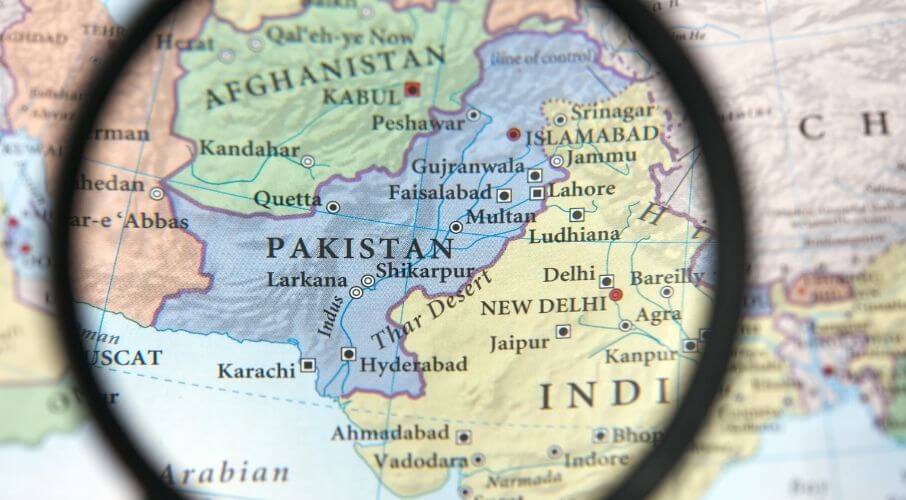The relationship between Pakistan and Afghanistan has been marked by complexity and contention for decades. Pakistan’s influence on its neighbor extends across multiple dimensions, encompassing geographical proximity, shared tribal affiliations, economic interdependence, and security concerns. This article delves into the intricate role Pakistan has played in both stabilizing and destabilizing Afghanistan, exploring its impact on regional stability, Afghanistan’s sovereignty, Afghan peace negotiations, humanitarian crises, and more.
Geographical Proximity and Tribal Ties
Pakistan’s proximity to Afghanistan, particularly the shared border along the Durand Line, has significant implications for stability in the region. The presence of Pashtun tribes on both sides of the border has deep-rooted historical and cultural ties – forming a cross national echo and great potential for social and political mobilizations. While these ties have occasionally fueled conflict, they have also provided opportunities for cooperation and collaboration.
Pakistan’s engagement with Pashtun tribes has at times helped stabilize the region by mediating conflicts and fostering relationships. However, in the majority of cases, terrain along the Durand Line have been used as a safe haven for both Afghan Taliban and the Tehrik-i-Taliban Pakistan (TTP), challenging local and central governments.
The dispute over accepting the Durand Line as an official border between the neighbors is also a major contributor to conflict between Pakistan and Afghanistan. This dispute has persisted for decades, with both neighbors using it as a lever to destabilize central governments and pursue their own interests.
Additionally, Pakistan’s concerns about India have heavily influenced its Afghan policy. Pakistan has always sought a friendly government in Kabul to prevent encirclement by India and to gain strategic depth in the event of conflict. Consequently, Pakistan has often supported Pashtun Islamist groups to counter Indian-backed Tajik factions.
Economic Interdependence
Economic ties between Pakistan and Afghanistan have been pivotal for both nations. Pakistan serves as a crucial trade partner, and economic cooperation between the two countries has the potential to foster stability. However, Pakistan’s restrictive trade policies, at times, have limited Afghanistan’s access to other markets, impacting its economic stability. Afghan officials, including the current Taliban administration, have frequently voiced concerns about Pakistan’s trade practices.
Pakistan has fostered economic dependency in Afghanistan through trade and has sought to capitalize on its strategic location for transportation and energy pipelines. A stable and prosperous Afghanistan represents an economic opportunity for Pakistan.
Peace Negotiations
One of the positive aspects of Pakistan’s role in Afghanistan has been its participation in peace talks. Pakistan played a vital role in facilitating negotiations between the Afghan Islamic Republic and the Taliban. Its involvement was crucial in bringing the warring parties to the table, and it supported the peace process, seeming to be a significant contribution to Afghanistan’s stability, but negotiations ultimately failed.
However, based on official reports from the previous Afghan administration and the Institute for the Study of War, Pakistan played a dual role during Afghan peace talks – on one hand supporting and facilitating peace talks and on the other hand helping the Taliban and other militant groups with resources to speed up war and insurgency inside Afghanistan.
Pakistan also maintained contacts with Afghan Mujahideen from the Soviet era and opposition groups, fueling their opposition and weakening the Afghan Islamic Republic’s position on the negotiating table. This multifaceted approach forced the Afghan government to fight a war on three different fronts: the negotiating table, the war on terrorism, and the fight with opposition groups.
Humanitarian Assistance
Pakistan has provided critical humanitarian assistance to Afghanistan during times of crisis, particularly in the form of hosting Afghan immigrants. This assistance demonstrates a commitment to helping its neighbor during difficult times and contributes positively to stability in the region. However, the mechanism for hosting immigrants often lacks internal standards, leaving many immigrants vulnerable.
Support for Radical Groups
Perhaps one of the most contentious aspects of Pakistan’s role in Afghanistan has been its support for radical groups and militants on Afghan soil. Over the years, Pakistan’s support for such groups has had a destabilizing effect on Afghanistan’s security, contributing to a climate of violence and extremism. This has always been claimed by Afghan governments and international institutions analyzing insurgency and terrorism in Afghanistan, but Pakistan has consistently denied these claims.
Pakistan still advocates for the international community, especially Western nations, to engage with the radical Taliban, lift sanctions, and provide humanitarian and economic assistance. They argue that incentives will likely yield better outcomes than punitive actions.
Although, the support for radicalism has also adversely affected Pakistan’s stability. Breakaway factions from these militants and insurgents, such as the Tehrik-i-Taliban Pakistan (TTP), have posed a significant challenge to Pakistan’s security. Despite differences in origin, these militant groups share a radical ideology and maintain close ties with each other. The control of the Taliban in Afghanistan has seen TTP’s militancy increase in Pakistan, becoming a potential point of contention between Pakistan and the Taliban administration.
Geopolitical Concerns

